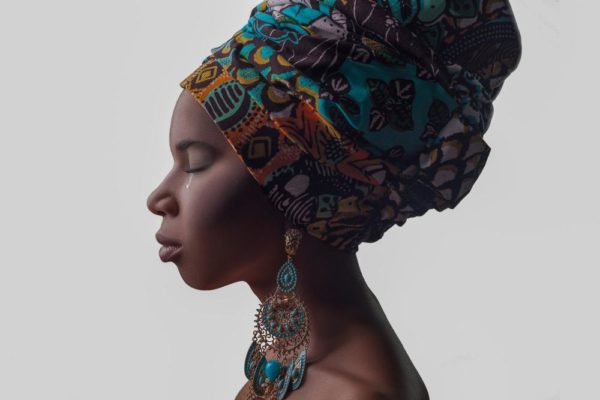Features
Osasogie Omogui: The Cycle Of Pain & Its Effect
 Pain is in a sense the same – creating a parallel to the first law of thermodynamics, which I call the cycle of pain. Picture this scenario;
Pain is in a sense the same – creating a parallel to the first law of thermodynamics, which I call the cycle of pain. Picture this scenario;
The manager of a company (and a father) is belittled by his boss because the boss was frustrated with the latest quarterly results, which disappointed the customers because they were unhappy with the product. Upset, the father comes home and mouths off to his wife, who is carrying her own tribulations from work or stress from the day’s running around.
The wife and mother then lose her temper with her child, who is hurt by his mother’s outburst. In pain and having witnessed a bad example from the mother about what to do with frustration, the child then goes to school the next day and causes a fight in the classroom during the teacher’s lesson.
The class is disrupted; the teacher then exacts collective punishment on the whole class, who then each go and act out the negativity in their own separate ways.
The form of the pain changes, but it doesn’t really go away—it’s spread out and perpetrated on new victims in a seemingly endless cycle of pain.
Except it can go away. After all, pain differs from energy in some important ways.
Pain can be created, added to, and multiplied or increased exponentially.
Above, the frustration that the teacher caused can turn into sadness, hurt, or anger among his assumable thirty pupils, who then have a negative emotional-energetic push to transfer and potentially increase the pain.
The internet and other mass communication technologies expand each single person’s ability to transfer and create more and more pain in more and more people. Weapons of mass destruction have the same function. This is a depressing picture.
The story, however, isn’t all bad. As conscious human beings, we can actively work to stop the flow and creation of pain.
When the husband comes home to vent at his wife, the wife can always ask what the matter is, listen compassionately, and react with love and a desire to help ease the pain.
When the child acts out in school, the teacher can always take a deep breath, draw upon her compassion for whatever is driving an innocent child to be aggressive, pull the child aside, and try and find out what’s wrong. We can all recognize that another person’s negativity is his or her pain, not ours.
This is very simple to comprehend but extremely difficult to achieve. It takes a lot of effort…. The most important thing we can give each other in times of pain is compassion, a simple, “Oh, I bet that’s really hard.” We should offer that before instead of advice on how to cope.
Even worse are the times when we immediately turn the conversation to ourselves: “I know just what you mean. I’m going through something like that too.”
I observe myself doing this way too often. My intent is to signal to the person that we’re partners in pain and can support each other. But the comment shifts the focus away from my companion’s heartache to mine. Or often times, we may unintentionally belittle our friend’s sorrow with stories of how we’ve overcome the same challenge.
Recently I overheard a conversation between two friends. One was talking about how emotionally wrenching she was finding it to give up her relationship and move on.
“Oh, you won’t miss it a bit once you get settled,” the other friend said.
She had already been through the experience and knew without question what lay ahead. I wanted to break in and hug the first lady. When we are in pain, the last thing we need is someone who knows without question what lies ahead.Many of us find it deeply uncomfortable to be in the presence of suffering.
And no wonder. We live in a culture where we’re taught from childhood to hide our hurts, to buck up and get over them. We don’t want to display them, and we don’t want to see them in others. Yet unspoken pain is all around us.
How did you react—with total serenity and compassion? Did you lovingly embrace this as a spiritual challenge and opportunity for growth? In all likelihood, far from it!
You probably shouted back, clamped down, cried, or otherwise reacted to negativity with negativity, and this in turn negatively affected someone else. Why? Because this could be really hard, and yet, it’s the struggle we, as human beings, face every day.
By definition, not everyone can accomplish extraordinary things. Poverty needs to end, and diseases need curing, but why not start with what you can influence right now—the world’s little daily hurts that, through the cycle of pain, create big problems?
But this our unfairness has been made dramatically worse in recent years by social media: to overlook or even look down upon the ordinary. And yet, it is the ordinary, everyday flow of life that is so difficult to navigate in a way that does no harm to ourselves or others.
To show love for another in sorrow asks more of us than empathetic gestures. It asks us to try and understand exactly what the other is feeling, and even to risk getting a taste of that pain.
Even when we aren’t causing it, so many of us shut our eyes and turn our heads to other people’s pain because we’ve been hurt ourselves and don’t want to face more pain if we can avoid it.
Maintaining the level of consciousness necessary to actively counter the cycle of pain requires a spiritual vigilance that is profound and yet so simple. Being able to break and not be responsible for the cycle of pain, to purify and not pollute our emotional environment is so ordinary but can be so impactful. To me, this is what it means to be the change you wish to see in the world.
It is a challenge each day to remember the cycle of pain and your role in it, and, more importantly, not to perpetuate it. Nevertheless, find life so much more rewarding. Though our paths may be littered with mistakes and small failings, most days, you should be able to see the incremental positive differences that you make.
You might not know what all of this will amount to, but what I do know is that you will feel so much more rewarded and empowered. My task now, I think, is to be present for others who are hurting, because I know what suffering means. This knowledge is a bittersweet gift that’s been given to me by life. I’m trying as hard as I can to use it.
This is what I know for certain: you can’t tell others how to heal. All you can do is sit with them—and when they’re ready, help them light a candle to find their way out of the dark. Doing this kindly, without giving voice to how you think they should move forward, is a practice we all will struggle to follow the rest of my life.
Photo Credit: Khosrork | Dreamstime

























